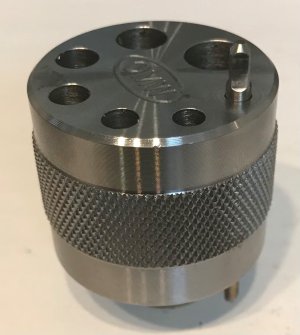I need to tap some small machine screws into some beefy steel. The screws are 7/64 in diameter, and appear to be 40 NC. I can't seem to find a tap for these screws, or a recommendation for drill hole size. The screws are those small ones you typically buy at electronics parts stores to mount PCBs using standoffs.
It's not critical as I can find another solution I am sure. But being able to tap holes for these screw would be the cleanest solution. Any good sources for small taps in Calgary?
It's not critical as I can find another solution I am sure. But being able to tap holes for these screw would be the cleanest solution. Any good sources for small taps in Calgary?

